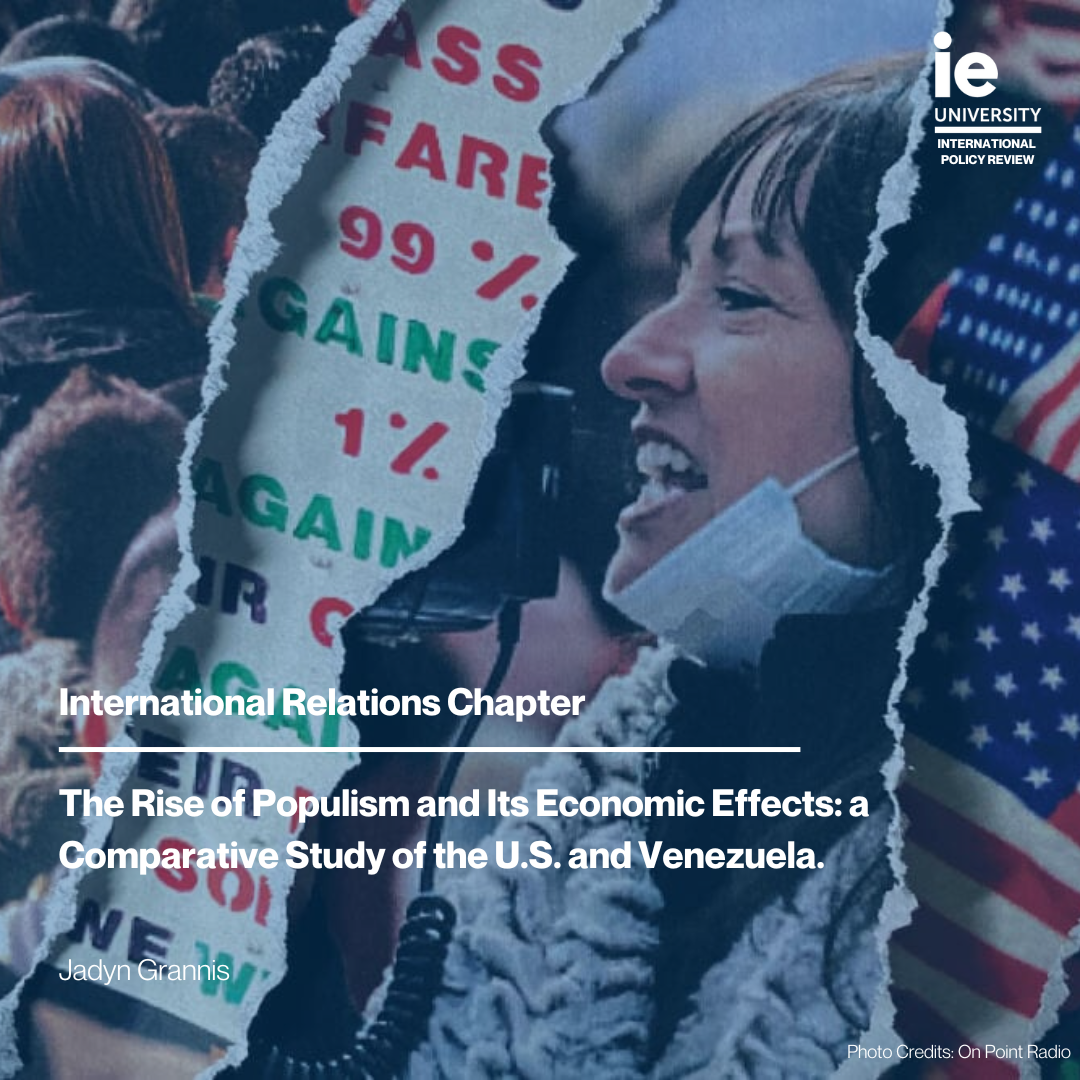
29 Jun The Rise of Populism and Its Economic Effects: A Comparative Study of the U.S. and Venezuela
Jadyn Grannis
School of Politics, Economics, and Global Affairs, IE University, Segovia, Spain.
Bachelor’s in International Relations.
E-mail: jgrannis.ieu2024@student.ie.edu.
Abstract
Populism, defined as a political approach that appeals to the will of the people standing against perceived elites or the
other, has had significant economic implications across various countries. This article examines how and why populism
has influenced economic prosperity in recent years, with a focus on the United States and V enezuela. This comparative
approach explores how populist policies—protectionism, nationalism, social welfare, and authoritarian actions—have
shaped economic growth, investment, and market stability. While some populist movements have acted through
increased government spending and protectionist policy, others have led to long-term economic recessions due to
hyperinflation and weakened institutional credibility. By examining these case studies, this paper highlights the complex
and often contradictory effects of populism on national economies, emphasizing the importance of institutional
resilience in response to the ever-changing opinions of constituents and the economic policy choices that determine
long-term prosperity.
READ THE FULL PAPER HERE
Keywords: Populism, Economic Policy, Nation.

Sorry, the comment form is closed at this time.